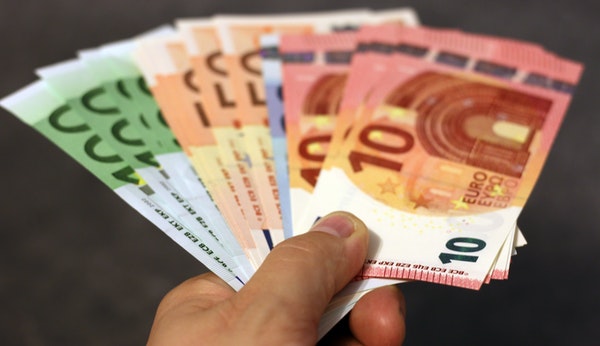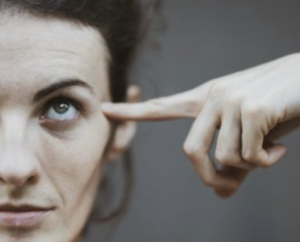Learn French Slang to Sound Fluent
French language courses usually only stick to basic vocabulary. But, that’s not how real French people speak. They use plenty of slang words and phrases in French. Especially the younger generations. So, when you’re learning French, it’s crucial that you’re familiar with these expressions. You’ll fit in better, and understand spoken French effortlessly with them. Not to mention how much better your foreign language fluency will develop.
Before you begin mastering these French slang expressions, it’s important to know the situations where you can use them. Some of these are kind of rude to strangers and can get you into awkward situations. So, we included some explanations for the meanings of the slang phrases, as well as examples in sentences. Here are 16 common French slangs to get you started.
16 Slangs in French You Need to Know
1. Balle
The true translation of the word balle in French is bullet. But, many people use balle to refer to money, like buck. Before 2002, the French currency was francs. People would say balles as slang to refer to francs. Now, the currency is the euro. Although the franc is long gone, people still say “balle” to refer to money.
Example:
- J’ai payé 20 balles pour la chemise. (I paid 20 buck for the shirt.)

2. BCBG
Slang for someone that is “preppy.” This acronym is used as slang to refer to someone that has elite fashion and style. BCBG is “bon chic bon genre”.
Example:
- Ce groupe de filles est tellement BCBG. (That group of girls is so BCBG.)
3. Bordel
Bordel means brothel. But, in slang, it’s used to describe a big mess, uncleanliness, disorganization, etc.
Example:
- Nettoyez la salle de bain, c’est le bordel. (Clean the bathroom, it’s a mess.)
4. Blé
Here is another slang word in French to refer to money. If you would do the English translation of blé it would mean wheat. It is now increasingly becoming a way to refer to money. You may hear the term blé, pognon, or fric as slang for money.
Example:
- La famille vaut beaucoup blé. (The family is worth a lot of money).
- Il s’est fait un max de blé! (I earned lots of money!)
5. Baraque
The actual translation of Baraque means a small plank house or shanty. The slang translation of the word can have two meanings. One meaning is referring to a house in general. Another slang translation of Baraque means someone that has a lot of muscles.
Example:
- Il vit dans une grande baraque avec ses amis. (He lives in a large house with his friends.)
- En règle générale, les joueurs de rugby sont plus baraqués que les joueurs de foot. (Generally speaking, rugby players are more muscular than football players.)
6. Kiffer
Today’s generation uses this term as slang to mean “I like something.” The best scenario to use this slang word is when you are talking about a hobby. Quick warning, if you hear the term “kiffe quelqu’un”, this means to desire a person.
Example:
- Je kiffe faire du vélo. ( I really enjoy cycling).
- Je kiffe ton frère. (I like your brother. (romantically))

7. BG
If you want to use slang to refer to a hot guy, you can use the acronym BG. BG stands for beau gosse. Be careful, if you use gosse by itself it is slang meaning a child. Also, in Quebec, gosse is feminine and has a totally different slang meaning. In Quebec, gosse is slang for male anatomy. Beware if you decide to use gosse in Canada, you don’t want to have any misunderstandings.
Example:
- C’est un homme grand et BG. (The man is tall and hot.)
8. Mec
Slang term meaning boyfriends or guys in general. If you want to call a guy good-looking you can use mec. Or if you want to ask a question about someone’s boyfriend, the term mec can also be used.
Example:
- Il est beau, ce mec. (That guy is good-looking.)
9. Meuf
Similar to the slang word Mec, Meuf can be used to refer to a female. The origination of this word is femme. Meuf can be used as “girlfriend,” but it can also have displeasing connotations depending on the context in which it is used. Meuf can also describe a woman who is sexually desirable.
Example:
- Cette meuf a de trop beaux yeux. (The woman/female has great eyes).
10. Je me casse
If you want to use slang to let someone know that you are leaving a place, use je me casse. You should know that when you use this slang term that you’re borderline rude. It is comparable to saying “I’m outta here!” Also, you can use this term as an insult. Casse-toi is fiercely telling someone “get out of here!” This term can also be used to say, “piss off.” You probably shouldn’t use this slang word everywhere, but if you are in a situation or on the street and want to get your point across, it is useful.
Example:
- Je lui ai dit “Casse-toi !” parce qu’il me saoulait. (I told him to get outta here because he was aggravating).
11. Bouffer
The true meaning of bouffer is to balloon in size or to puff up. But it is now a slang to replace manger (which means to eat) with bouffer. If you hear the term la bouffe it is referring to food.
Example:
- Je suis allé en ville pour acheter de la bouffe. ( I went into town to buy some food.)
12. Laisse tomber
This phrase means “let it go.” If you completely translate the phrase from French it says, “let if fall.” If you are comparing it to English, it is equivalent to saying, “drop it!” It is important to note that in English it is said more aggressively. In French, it is more subtle. The French version of this phrase can also simply mean “never mind.” A perfect time to use this phrase is when talking to someone and they do not understand what you are trying to tell, or you are tired of explaining yourself.
Example:
- J’abandonne, laisse tomber! (I give up, drop it!)

13. Bobo
Similar to the English booboo, Bobo is baby talk to refer to an injury (une blessure). Younger generations often use the term to refer to bruises, cuts, and other minor injuries.
Example:
- J’ai un bobo sur le pied. ( I have a scratch on my foot).
14. Une clope
This is a slang word that is often used in Paris. It is the argot for cigarette. If you are a smoker and you need to ask someone if they have or do, they want a cigarette, une clope will come in handy.
Example:
- T’aurais pas une clope? (You don’t happen to have a cig, do you?)
15. Ouf
In verlan, ouf means awesome or crazy. Ouf is the backwards of fou which means crazy and awesome. You can use ouf as an adjective or noun depending on how you structure it. If you want to use it as a noun use the “d” and if you want to use it as an adjective do not use “de”.
Example:
- Nous avons fait quelque chose de génial ouf aujourd’hui. (We did something crazy awesome today.)
16. Relou
This French slang means something is annoying or irritating. You can use it to emphasize that a situation is especially taxing.
Example:
- C’est trop relou! That sucks!
Learn More French Slang Phrases
The terms and phrases above are just a few slang words that you can add to your vocabulary. There are countless others. If you want to learn more to become fluent, that’s easy. You just need to download OptiLingo.
OptiLingo is a language learning app that shows you exactly how the locals speak. Learning these common words and phrases is what makes your fluency stand out. Fit into French society effortlessly by mastering the most essential and useful expressions. Try OptiLingo today to achieve amazing results with learning French!







